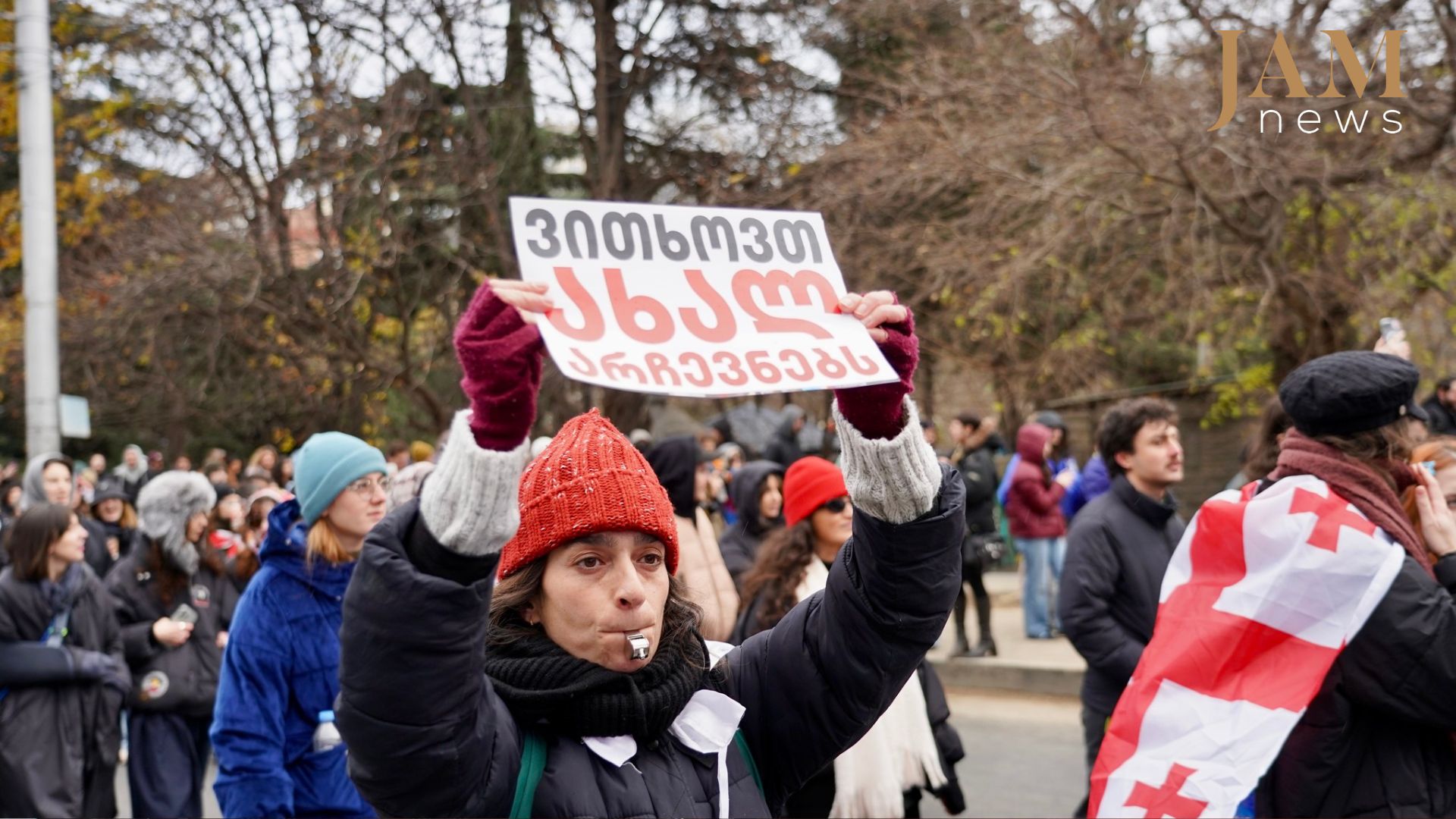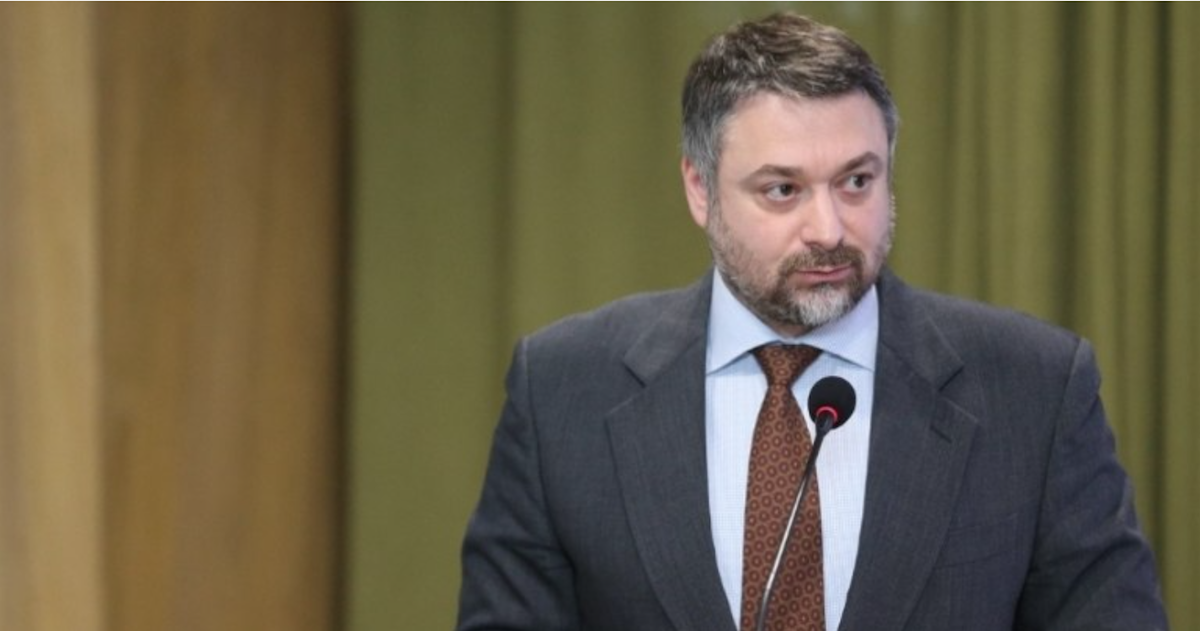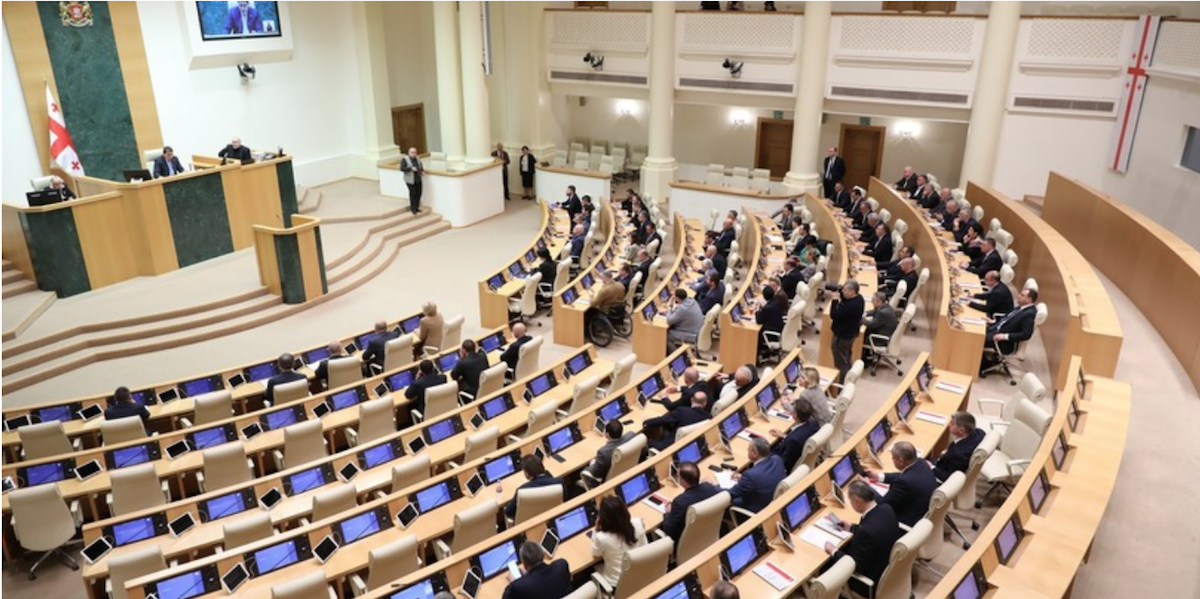Arrests of opposition politicians in Georgia and Georgian Dream’s investigative commission - what next?
Opposition arrests in Georgia
On May 22, opposition politician Zurab (Girchi) Japaridze, one of the leaders of the Coalition for Change, was arrested in the courtroom of the Tbilisi City Court. The reason was his refusal to pay bail of 20,000 GEL (approximately $7,100), imposed for failing to appear before an investigative commission created by Georgian Dream to examine the actions of the previous government during Mikheil Saakashvili’s presidency.
Opposition figures and civil society representatives say Georgia now has yet another political prisoner.

Earlier, also in the courtroom and in connection with the same case — refusal to pay bail for failing to appear before the commission — former defense minister during Saakashvili’s presidency, now opposition politician Irakli Okruashvili, was arrested.
The trial of Zurab Japaridze took place amid an unprecedented police mobilization around the courthouse, where hundreds of people had gathered since the morning to support him. Clashes broke out between Japaridze’s supporters and the police both outside and inside the building.
The next hearing in this case is scheduled for June 4.
The video shows Zurab “Girchi” Japaridze, one of the leaders of the Georgian opposition coalition “For Change,” embracing his wife before being handcuffed and taken away by court bailiffs.
— JAMnews (@JAMnewsCaucasus) May 22, 2025
Japaridze was arrested inside the courtroom after the court ruled to place him in… pic.twitter.com/vWkGzzmRaE
What is the “temporary investigative commission on the activities of the previous government”?
Known in Georgia as the “Thea Tsulukiani Commission” (after its chairperson), the body is officially titled the Temporary Investigative Commission on the Activities of the Regime and Political Officials from the 2003–2012 Period.
It was established in February 2025 at the initiative of the ruling Georgian Dream party.
The commission claims its goal is to investigate possible human rights violations and abuses of power by the then-ruling United National Movement (UNM), including in the context of the August 2008 war. Today, UNM is one of the country’s main opposition forces.
The commission is chaired by Thea Tsulukiani — deputy speaker of parliament, former justice minister, and one of the most controversial figures in the Georgian Dream government. Her name has long been associated with politically motivated influence in the law enforcement system.
The commission consists of eight members of parliament, five of whom represent the ruling Georgian Dream party. The remaining members come from groups loyal to the ruling party, such as People’s Power and the European Socialists.
According to parliamentary rules, attendance at investigative commission hearings is mandatory. This is not a mere formality — anyone summoned has no legal right to ignore the subpoena. Refusal results in serious consequences: a heavy fine or even up to one year in prison.
The commission has quasi-judicial powers, and refusal to cooperate with it is treated as contempt of the law.
Most opposition politicians have refused to appear before the commission. The only exception has been Giorgi Gakharia — former Georgian Dream prime minister and current leader of the opposition party For Georgia.
Politicians who refused to cooperate argue that the most recent parliamentary elections, held on October 26, 2024, were marred by serious violations and do not reflect the true will of the electorate.
For this reason, the opposition parties and coalitions that won seats in parliament have refused to take up their mandates and consider any structures created by this parliament illegitimate.
This view is shared by most domestic election observers, non-governmental organizations, and a significant part of the international community — none of whom have formally recognized the election results.
The commission began its work amid an ongoing political crisis that has lasted several years. For more than six months, massive protests involving thousands of people have continued in central Tbilisi.
Protesters are demanding new parliamentary elections, the release of political prisoners (whose number now exceeds 50, according to rights groups), and an end to the openly pro-Russian and anti-Western course of the ruling elite.
Officially, the commission claims its goal is to restore historical justice and hold the “guilty” accountable. However, according to most observers, its real purpose is to distract the public from the ongoing crisis agenda, shift focus away from the authorities and onto the opposition, and move political tension from the streets into the walls of parliament.
At the same time, the commission has become a tool for the ruling party to legally eliminate the opposition from the political arena — by initiating court rulings to ban opposition parties, rendering them illegitimate in the eyes of voters.
During the 2024 election campaign, Georgian Dream openly threatened to ban all major opposition parties if it secured a constitutional majority in parliament.
However, even according to the official — and widely disputed — results announced by the Central Election Commission, the ruling party failed to obtain that constitutional majority.
“The number of political prisoners in Georgia is growing”
“The number of political prisoners in Georgia is growing” — this statement was widely echoed both inside the country and abroad following the arrest of Zurab (Girchi) Japaridze.
The 5th president of Georgia, Salome Zourabichvili, called the arrest of the opposition leader a sign of Georgian Dream’s weakness.
“This has nothing to do with justice — this is the beginning of a direct political assault on opposition leaders. We already have activists in prison for absolutely nothing; the next step is pressure on political leaders. This investigative commission was created precisely for that. Any regime that resorts to such methods is doomed to collapse,” Zourabichvili said in a video statement.
“We are witnessing not only a Kafkaesque trial against Zurab Japaridze (and others), but also something bigger — the erasure of politics itself in Georgia,” wrote author Lasha Bugadze on Facebook. “That’s exactly how politics disappeared in Russia, Belarus, and Azerbaijan. A politician is being arrested simply for remaining a politician — for political dissent and nothing else. I fear many still don’t realize what exactly is unfolding in Georgia at this very moment.”
Japaridze also received support from fellow opposition politicians:
“The number of political prisoners in Georgia has increased. Zurab Japaridze has now joined the ranks of prisoners of conscience — a man who is a true patriot of this country. He refuses to accept injustice and does not recognize an investigative commission established in violation of the Constitution and issuing unlawful decisions,” said Badri Japaridze, one of the leaders of Lelo – Strong Georgia.
Numerous European politicians and members of parliament also issued statements condemning Japaridze’s arrest and demanding an end to political repression in Georgia.
Why is the 2008 August War being investigated?
The main focus of the commission is the Georgia-Russia war over South Ossetia in August 2008.
It is within this episode that the authorities are seeking to find “criminal culpability” of the former leadership. Among those summoned for questioning were the former Chief of the Joint Staff of the Georgian Armed Forces, General Zaza Gogava, the commander of peacekeeping forces Mamuka Kurashvili, former Prime Minister Zurab Nogaideli, and other high-ranking officials.
They are being asked questions that resemble conspiracy theories more than a legal investigation: Did Georgia’s leadership act independently? Or were they under outside influence — “perhaps from the West, or maybe the East”? What role did certain “global powers” play?
Meanwhile, nothing is said about Russia’s actions in the lead-up to and during the war — the massive militarization of Abkhazia and South Ossetia, the invasion by regular Russian troops, or the ethnic cleansing. This side of the conflict is seemingly ignored by the commission.
The commission’s work has triggered a wave of criticism from both the opposition and civil society. It is widely seen as a tool for political retaliation.
One statement, in particular, caused public outrage: commission chair Tea Tsulukiani said that Giorgi Antsukhelidze – a national hero of the 2008 war – “was sacrificed in vain for Mikheil Saakashvili’s PR.”
“This commission is a political assignment from the Kremlin,” said UNM political secretary Giorgi Baramidze in an interview with Echo of the Caucasus. According to him, the goal is to remove Russia’s responsibility for the aggression and shift the blame onto Saakashvili.
Baramidze also believes the commission is part of a broader Russian strategy to pull Georgia back into its sphere of influence: “Since 2012, when Putin installed his proxy Ivanishvili, the objective has been to weaken Georgian statehood and turn the country into an authoritarian satellite like Belarus. This commission is part of that strategy.”
Kakha Gogolashvili, director of the European Studies Center at the Rondeli Foundation, sees the ruling party’s actions as a threat not only to the opposition but to the state’s long-term stability: “This is an attempt to legitimize power by criminalizing the alternative.”
Political analyst Irakli Melashvili views the commission purely as a manipulative tool: “If they were truly interested in understanding the causes of the 2008 conflict, they would have to talk about Putin and Russian aggression. But they deliberately ignore that.”
What’s next?
Georgian Dream plans to submit the final report of its investigative commission to the Constitutional Court and, based on it, seek a ban on the United National Movement and its “successor parties,” as the ruling party labels all major pro-European opposition forces in the country.
On May 13, the parliament controlled by Georgian Dream already passed a package of laws aimed at banning opposition parties.
News in Georgia





















